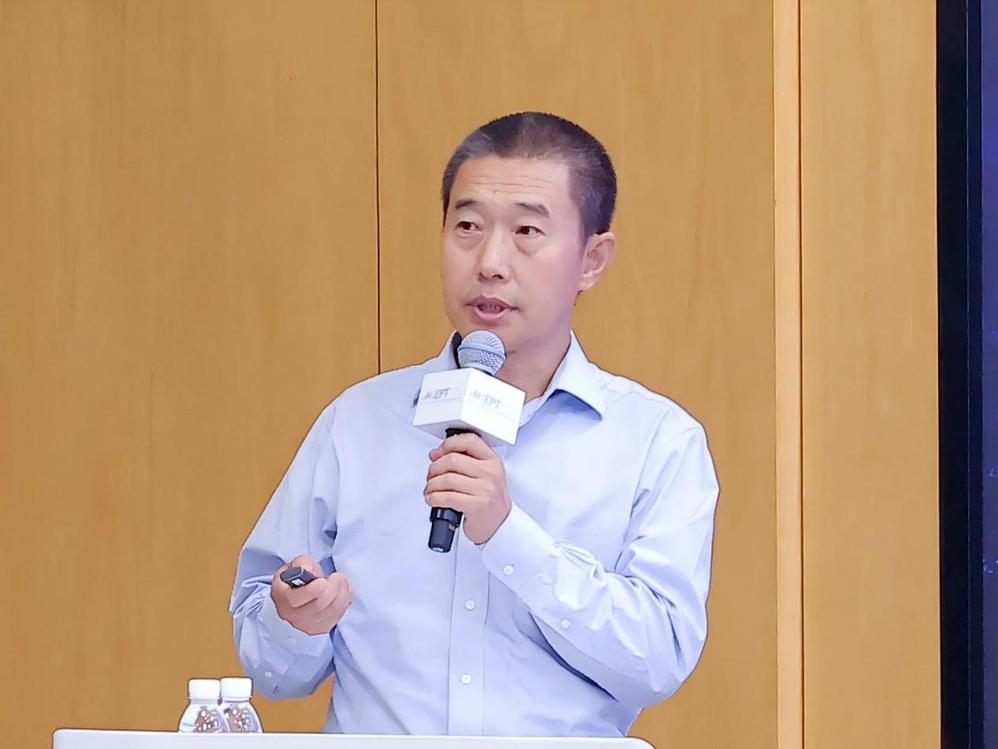Liu Peilin: Shoring up the economy urgently requires a suite of policies that leverage public debt issuance
The following is a summary of Liu Peilin's presentation delivered during the release of a report analyzing China's current economic situation and his comments during a roundtable discussion at the 49th Tsinghua University Forum on China and the World Economy held at Tsinghua University, Beijing, and broadcasted online on July 2, 2025. Liu serves as Chief Researcher at Tsinghua University's Academic Center for Chinese Economic Practice and Thinking (ACCEPT).
On July 2, 2025, the 49th Tsinghua University Forum of China and the World Economy, hosted by Tsinghua University's Academic Center for Chinese Economic Practice and Thinking (ACCEPT) in partnership with the university's School of Social Sciences, was broadcasted online under the theme of "China's 2025 Mid-Year Economic Update." Chief Researcher at Tsinghua University's ACCEPT, Liu Peilin, delivered the research institute's most recent report analyzing China's current economic situation and participated in a roundtable discussion at the forum alongside other distinguished guests where he stressed that there is a pressing need to implement policies leveraging public debt that can help bolster the country's economic performance.

During the forum, Liu released the latest China Macroeconomic Analysis and Forecast Report on behalf of the research institute. The report concluded that China's economy at present has begun to show signs of stabilization, even though there are still nonetheless underlying risks. The central issue revolves around a situation of stagnating vital energy and impaired blood flow—to borrow the language of traditional Chinese medicine. That is to say, the country is currently suffering from persistently high levels of local government debt that have brought about a stagnation in economic and financial operations. Thus, the solution is to urgently press ahead with a new batch of policies and specifically a suite of more proactive fiscal policies.
Liu further summarized a number of key data points and pieces of information that were officially released in the report on the present state of China's economy: (1) a nominal growth rate that has risen to 4.6%, which despite still remaining at a relatively low level, nonetheless represents a further recovery compared with the second half of last year; (2) the continued advancement of industrial upgrading, with the growth of value added and investment in the equipment manufacturing and high-tech manufacturing sectors having been significantly higher than the overall level for all industrial enterprises above the designated size; and (3) a modest rebound in consumption, with the year-on-year growth rate for total retail sales of consumer goods having accelerated compared with the previous month.
As outlined in the report, Liu highlighted several recommendations: 1) issue 30 trillion yuan in sovereign bonds to replace local government debt; 2) issue 4 trillion yuan in sovereign bonds to lend funds to local governments for the purchase of housing stock, absorbing surplus real estate inventories and converting these units into affordable housing; 3) issue 1 trillion yuan in sovereign bonds to assist enterprises dealing with production overcapacities to cycle between older and newer production throughput as soon as possible, expediting the process of market clearance; 4) issue 1 trillion yuan in sovereign bonds to support consumption as well as the renewal and replacement of outdated equipment; and 5) issue 1 trillion yuan in sovereign bonds annually for a 10-year period, lending these funds to lower-level governments in those localities experiencing population inflows and supporting local governments in their push to urbanize migrant workers.




